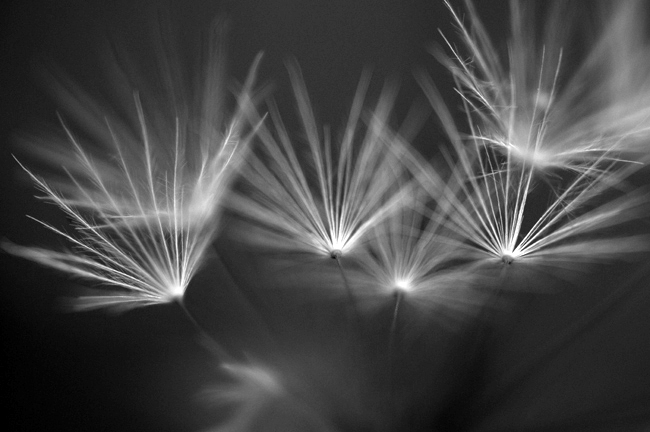Bill Brandt, photographer, wrote: "Composition is very important, but I believe it is largely a matter of instinct. There are text-book rules on the subject, but they are likely only to result in stereotyped pictures. They hamper any one's native imagination".
There are no easy formulas that guarantee the creation of good imagery. Experimentation gives you choices. Do I like that result or not? If not, why not? What draws you to certain subjects and not others? Am I getting myself in a rut shooting the same subjects over and over again? All these questions help you determine your creative direction and pushes you to break out of your limited shooting environment.
When you first come upon a subject that hits you with interest, stop, slow down and take in the entire scene. Don't wander off helter-skelter, shooting everything just so you might hit on an acceptable image. Take your time, take a deep breath and explore the subject that attracted you. Go below the surface reality that is present, don't succumb to its calling. Find your inner patience to allow the subject to reveal itself on a deeper level.
Use your intuition as you begin to explore and exhaust those first moments of inner excitement. Once your mind begins to slow down and is calm, that is the time to really study your subject and begin looking for those angles and perspectives that will lead you to a deeper, more personal exposure rather than those run and gun images that have become standard operating procedure on social media.
When I come upon a subject that interests me, I usually begin with an environmental image first. This calms my mind and gives me a visual layout of the landscape. I always feel better once I have begun the exploration process and have taken that first image, it becomes a "good to go" moment for me. I then begin to zero in on my true subject as my intuition rises above the outer chatter. I move closer and closer to the subject I wanted to shoot (both literally and figuratively) and begin to connect with what drew me to this subject in the first place. I can reverse this as well. I can get closer to the initial perception and then feeling something isn't working, move back and explore the subject from further away. Maybe the subject needed a bigger environment to contrast with.
Photography gives you a license to experiment and enjoy the full process from initial interest in a subject to your final exposure that captures your inner sight.





No comments:
Post a Comment